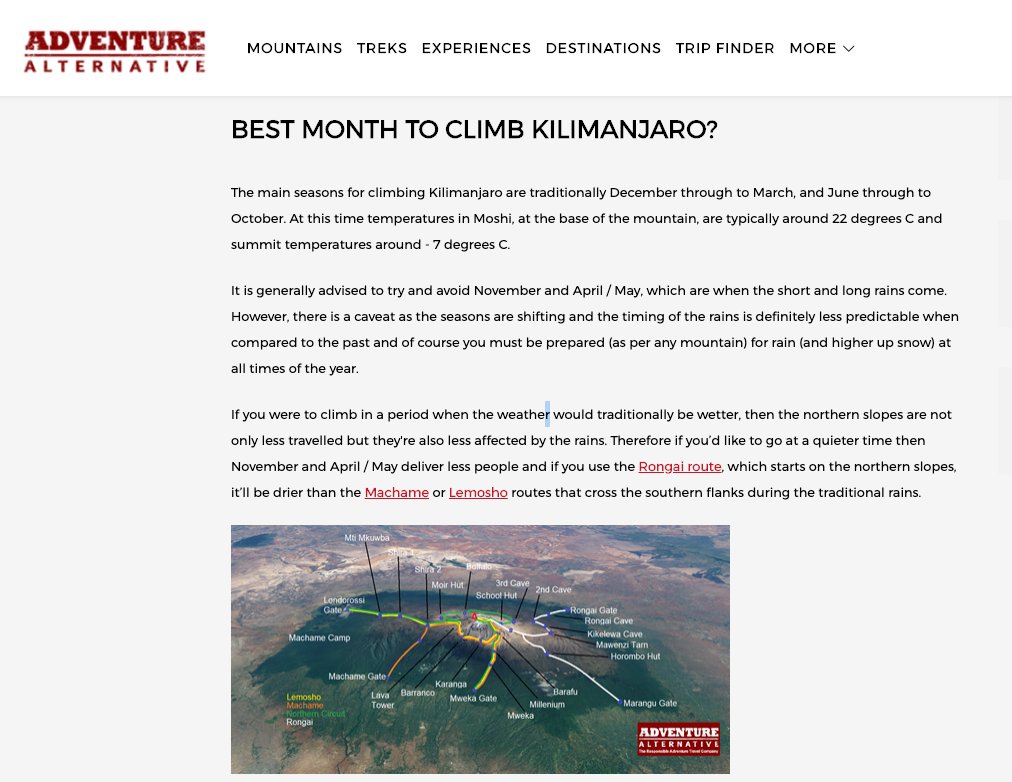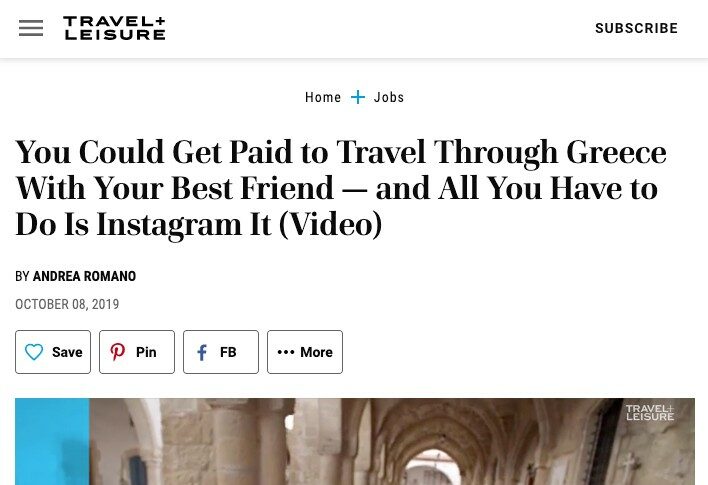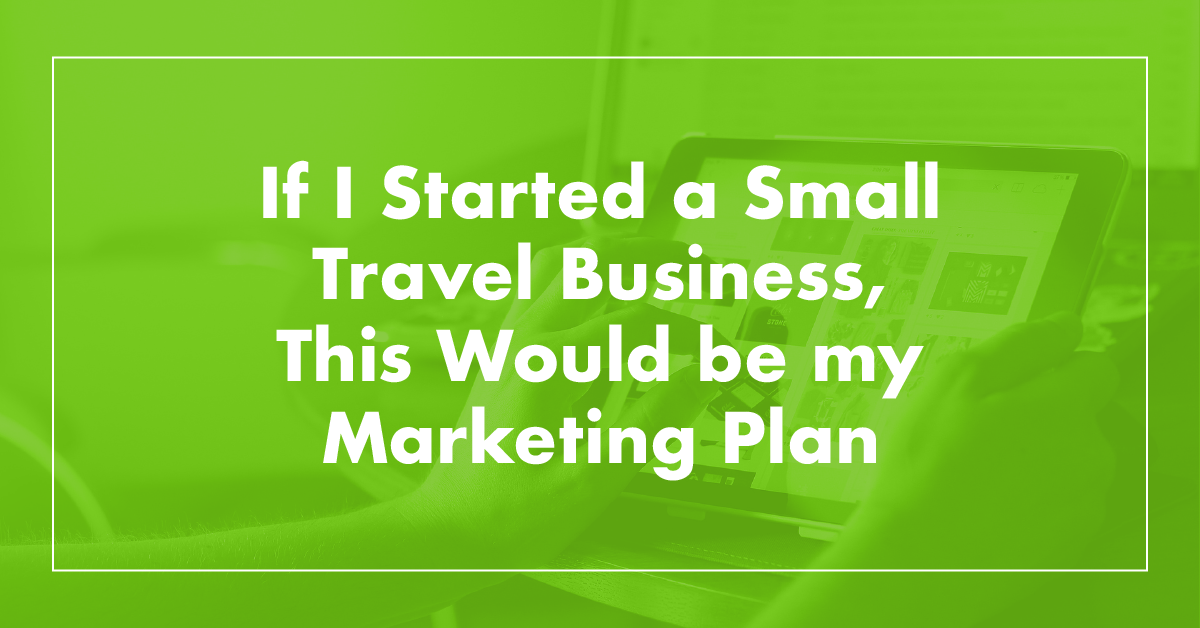It’s an incredibly difficult time for travel businesses with the industry being one of the worst-hit from the coronavirus pandemic.
However, there are shoots of recovery starting to show.
Many businesses are starting to move their focus back to marketing so they can be ahead of the curve when more widescale travel is possible once again.
Amid all of these challenges, it’s hard to imagine starting a brand new travel business.
But I know people who are doing just that and facing the current challenges head-on.
They know the industry will come back around and they want to view this as a window of opportunity to make progress while others are stood still.
These conversations made me think about exactly how I would go about marketing a brand new travel business if it were my own, and I thought those musings would make for an interesting read.
Hopefully, the insight below will help those who are right at the start of their journey (and potentially some who are well into it) get through these tough months and flourish on the other side.
First job – build a website, right?
Wrong.
Before you even start thinking about designing a site you need to delve into the data in your market, identify who your audience is and what they are searching for.
Your website design and build should all flow from this initial research.
Without it, there is a high risk you will go off course immediately and end up way off course before you’ve gained any momentum.
Don’t just do this at the surface level for the 5/10/20 headline phrases you think your audience will search for. Delve deep.
Look at every stage of the marketing funnel and identify what people are searching for before they’ve even considered the product or service you offer.
The more detail you go into in this process, the more successful your business will be.
Once you’ve identified what your audience is searching for, you need to map that information onto your website.
Through the design process, you should be referencing your keyword research and ensuring that you have all the pages required to cover off all the phrases and topics you identified.
At this stage, you also need to ensure you’re well informed as to what an optimized page looks like.
Read up on resources like this, or consult with an SEO specialist (ideally a travel-focused one 😉) who can guide you on what you need to consider.
Once you’re through the design phase, you’ll move on to the build.
Again, don’t take for granted that every web design company knows how to build a good website!
Everyone will say they build “SEO-friendly” sites but generally, that doesn’t mean anything beyond the fact that the URLs will include words and there will be a sitemap somewhere (probably with the wrong pages in!).
The best way to do your due diligence is to ask to see a variety of the company’s previous builds and assess how they are performing.
You can then cross-reference this with testimonials from those clients and see how the experience of working with them has been.
This area is a minefield given the number of businesses out there offering web design and build services.
Be sure to do thorough research on who you choose as it will dictate the success of your business and how fast it can grow.
So you’ve got a beautiful and well-built website in the offing, now you need to populate it!
Writing effective content is crucial in both getting found by users and then convincing those users that they should buy from you.
Focus too much on one or the other and you’ll fall short.
Content that ranks in search engines is no longer about stuffing in keywords or writing 5,000 words for the sake of it.
You need to address the intent of the user for the query they searched for and provide top quality, accurate information when they land on the page.
Think about what your user wants and use your expertise to write the best content on the web for that user.

If you do that, and fit it into the optimized page templates that you created in the design process, then you should end up with content that has a great chance of ranking.
I know what you’re thinking, that’s a lot to consider before we’ve even launched!
However, if you want to build a successful business you need to have the right foundations in place.
But now we’ve made it. The website’s ready and looking snazzy.
Your content is written and all set to be read. Now we just need some humans to look at it.
We always recommend to new businesses that they launch with a big PR campaign, for a variety of reasons.
The first of these is probably the one we all would associate with PR.
Get coverage and make people aware you exist. If you can get on top industry publications or national/international news websites then it’s possible that people will come to your site and enquire about what you offer.

However, PR is not just about getting found by people.
Running a big PR campaign can bring in links from top publications that are extremely powerful and give you a huge boost in ranking performance in search engines.
As a brand new site, you won’t have any links at all.
In a competitive industry like travel, you will need to bridge a significant gap to competitors to start appearing for some of the more highly-searched phrases.
A launch campaign can help you get an influx of fantastic links that immediately closes that gap and allows you to start ranking in search engines much more quickly.
A campaign we ran like this brought in more than 100 links for the client, and within 6 months we were on page 1 for the biggest phrase they were targeting.
Without that link-focused PR work, there is no way we would have seen that improvement.
Another benefit of this process is that once you have gained this kind of coverage you can add some of the logos of bigger publications to your website to show you’ve been featured on them.
This kind of social proof will instill more trust in visitors to your site and make them more likely to convert.
Finally, launching a PR campaign that gains good visibility can also start to drive some branded searches for your brand.
This is a good signal to search engines that you are a brand worth trusting and many other positive secondary effects.
Links should always be a high priority in my opinion when launching a new site, but once you’ve run some activity that has attracted a good amount of quality links you might want to move some focus to your social media channels.
Big social media followings don’t directly impact your rankings in search engines, so I tend to focus on the search engine-oriented work first as users in that environment tend to be more conversion-focused.
However, there are lots of benefits to building a strong social media following and so carrying out some activity to grow this should certainly be on your list fairly early in the journey.
One way to do this is simply to add content and engage with users, but we’ve found that this approach is not particularly efficient in growing a big following.
We’ve seen much more success with PR-orientated approaches that drive people to your social media profiles and encourage them to engage with it in some way.
We’ve seen this increase followings from zero to over 10,000 in just a few months, so it can be very effective in tandem with consistent content being added.
I would highlight that in our experience you need to focus your campaign on either your website and getting links, or on driving social media growth.
Where we’ve tried to do both it generally hasn’t been as successful.
This would also apply to the platform you choose – make sure you focus on Instagram, Twitter, Facebook, or wherever else you want to grow and send people to just that one place.
More focus will bring more success.
Alongside the SEO and PR activity, partnerships are an excellent way of giving you more direct access to the market that could lead to sales early in the business’s life.
There are both short and long term benefits to building relationships with the right partners.
The short term benefit is that you can achieve exposure to your target market almost immediately.
If you find a partner with a similar audience and you can offer something beneficial to them then you can get them to refer customers to you from their pre-existing database.
The long-term benefit is that you can establish co-marketing opportunities with partners that help grow your brand visibility over time so you don’t rely on others to send you leads.
This could be writing guest content on your partner’s website that helps push your ranking performance forward.
It could also be including each other in guest content you write on third party websites.
Or it might be setting up events that you run together.
There are so many avenues with this approach.
The key is that you find the right partners with the right audience and work closely with them to ensure you’re both getting the benefit of working together.
Once you have implemented the approaches above you should be well on the way to growing your brand’s visibility and starting to make some sales.
And this is another point where lots of people fall down.
They think they’ve done content and PR and they want to move on to the next thing.
PPC. Display advertising. TV!
The key at this point is to keep your focus and continue implementing the things that are working for you.
As the cogs start to turn with content, PR, and partnerships then you should just be looking to move them faster and generate more momentum.
Run another PR campaign, write more content, or find other partners (or ways you can work with existing partners more).
You can get a long way and huge visibility just working on these aspects.
The main reason being that they all feed into your SEO performance which, as you become more established, is just a flywheel that turns faster and faster without increased time and effort.
Team that SEO progress with the immediate impact that comes from PR coverage and partnerships and you have a strong recipe for success that will grow your new business in a sustainable way.
At least, that’s what I would do.
More Resources:
- How the Coronavirus Pandemic Has Impacted the Travel Industry
- How to Create a Travel Content Strategy That Drives Links, Traffic & Conversions
- 7 Basic SEO Best Practices You Can Learn from Huge Travel Brands
Image Credits
Featured & In-Post Images: Created by author, July 2020
All screenshots taken by author, July 2020












